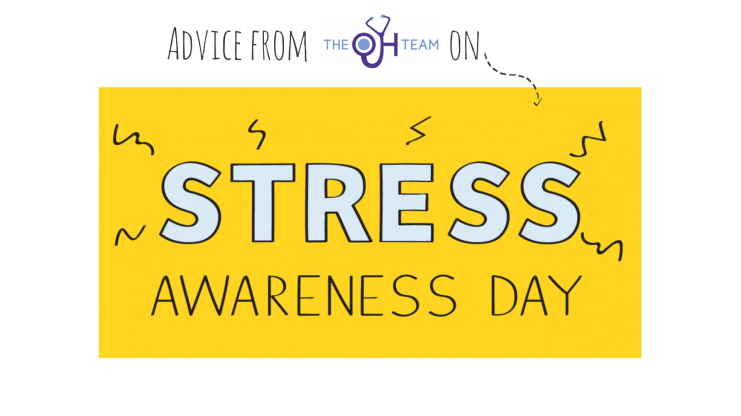News.
Check back here regularly to find out what's going on at The Occupational Health Team Ltd.
WRITTEN ON: 01 MAY 2018
Many companies who contact us are not aware of the full benefits of implementing Occupational Health in their business. Aside from Health Surveillance and Role Specific Medicals, Sickness Absence is also large part of what we do.
Sickness absence management is of key importance in every workplace as the impact of absence has a
damaging effect on your business.
Referring employees to occupational health professionals is regarded as the most effective approach to managing long-term absence according to the CIPD’s annual absence management survey.
Most organisations aim to promote and maintain a healthy workforce, but there are times when a referral to a specialist occupational health practitioner is essential to support the management of sickness absenteeism or the identification of work-related health problems.
Sickness absence monitoring and follow-up will be carried out to:
• assess the level of skill, physical and mental capacity needed for effective performance at work.
• evaluate whether the working environment is having an adverse effect on the individuals health.
• consider whether the individual's condition is likely to make it difficult for him/her to do their job safely.
The implications of reduced productivity caused by long term sickness absence can be detrimental. Occupational Health helps to support a robust sickness absence policy to ensure that the employee returns back to work as efficiently and as safely as possible.
Occupational Health provides a source of independent, expert guidance in interpreting the available evidence, advising whether a given pattern of absence is likely to be consistent with a stated medical condition, or whether the available evidence suggests some additional underlying factor that hasn’t yet been identified.
IIn turn, days lost through ill health by
implementing effective absence management programmes will be reduced.
Effective Absence Management includes:
• Measuring and monitoring the reason for absence – types, frequency and trends
• Working with line managers to help manage staff on long term sickness leave
• Pro-active measures such as introducing health promotion and wellbeing activities for employees
At the Occupational Health Team Ltd, we do not believe in a 'one size fits all' approach to Occupational Health. We offer bespoke services based on your needs. Our staff will meet with you to determine what type of service you require and in what capacity. For further information on how to recieve Occupational Health for the benefit of your business simply get in touch with us today.
WRITTEN ON: 01 NOVEMBER 2017
This week marks ‘National Stress Awareness Day’.
As an Occupational Health Care Provider, here at The Occupational Health Team Ltd we encounter those suffering from stress first hand, whether that be workplace induced or the impact of personal
stressors that have an impact on an individual’s wellbeing.
Firstly, let’s start with a definition of what stress actually is. It is defined as “a state of mental or emotional strain or tension resulting from adverse or demanding circumstances.” Stress is a
completely natural response to exposure to demands or danger. Initially, when the body encounters what can be deemed as a stressful situation, it replies with a release of stress hormones including
adrenaline & cortisol which prepares the body for response to the stressor.
These stressors can vary from person to person – some can cope with certain demands better than others, individuals can cope in many different ways. It is important to realise the full impact that
continuous stress can have on not only mood and general well being, but health.
Physically, being continually exposed to stressful circumstances can lead to headaches, muscular tension, a negative effect on the immune system which then can impact sleeping patterns and ability to
function normally. Chronic stress can also heavily impact the cardiovascular system.
Emotionally, those experiencing stress can have symptoms of low mood, heightened anxiety which can spill into personal life and relationships with others. It is vitally important that we deal
appropriately with stress and the symptoms which that stress can bring to prevent stress taking over and impacting personal life outside of the workplace.
Follow The Occupational Health Team’s ‘Seven Steps to deal with Stress’ to help manage your situation should you be feeling the effects of stress in your life.
1. Address your Stress
Try to narrow down the specific stressors that are impacting on you. Do these bouts of stress happen at a certain time? After a certain event? Try and work out the causes to help to overcome your stress.
2. Organise your time
Having an organised routine for your working life can be a source of comfort, whereas the uncertainty of not having a plan can compound feelings of stress. Before rushing headlong into your daily
tasks without thinking, set yourself goals you can comfortable achieve and organise your daily schedule; as things fall into place you’ll almost certainly feel better.
3. Get Enough Sleep
When it gets dark at night it is time to start winding down your day. Try and do something to alleviate your stress before you go to bed to help you relax. Going to bed with a lot on your mind can have many negative impacts. It is the time when your mind can begin to overthink and build up more worry before facing the next day. If we are sleep deprived we cannot manage anything very well. Get the right amount of sleep and your stress will be much easier to manage.
4. Keep Physically Active
Physical activity allows us to diffuse the toxic stress hormones, cortisol and adrenalin, as mentioned earlier are released to deal with the stressor you are exposed to. If you are stressed, go on a long strenuous walk. Exercise really does reduce stress and helps to release better hormones such as endorphins which can raise a lower mood.
5. Eat Right
If we eat the right foods, especially fruits and vegetables it gives our bodies the right nutrients to keep everything working properly. It is easy to fall into bad eating patterns without being stressed however stress can cause the body to crave unhealthy foods which encourage us to ‘comfort eat’.
6. Connect With Others
Too often, when we are stressed, we can become a little more likely to socialise less and spend more time alone. This is especially true for men. When we are stressed, is when we need to reach out to others the most. Although it seems counter intuitive, when we focus on others rather than ourselves our stress will seem to resolve itself.
7. Accept What You Cannot Change
Unfortunately, in life there are just certain things that are beyond our control. We simply can’t fix everything, including what may be causing your stress which we
mentioned in point number one.



